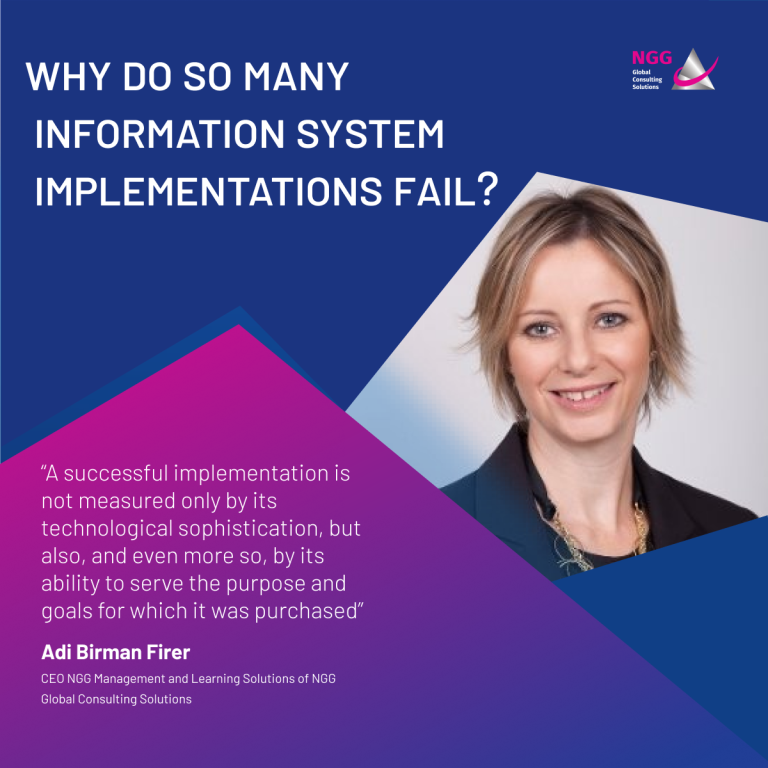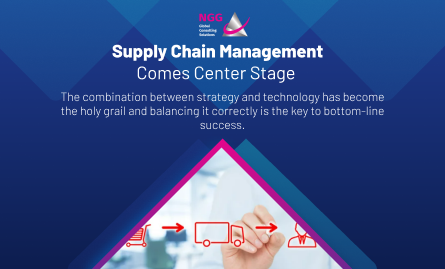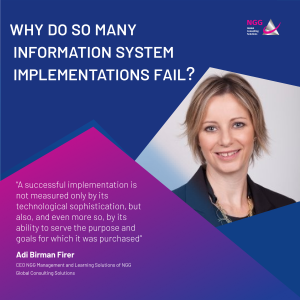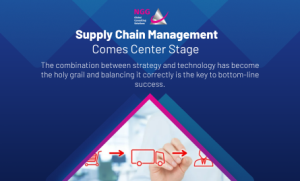A Black Swan is an unexpected event that could lead to total corporate collapse. What have we learned from the Coronavirus that can help organizations prepare for their return?
By Ram Jaulus, CEO NGG Global Consulting
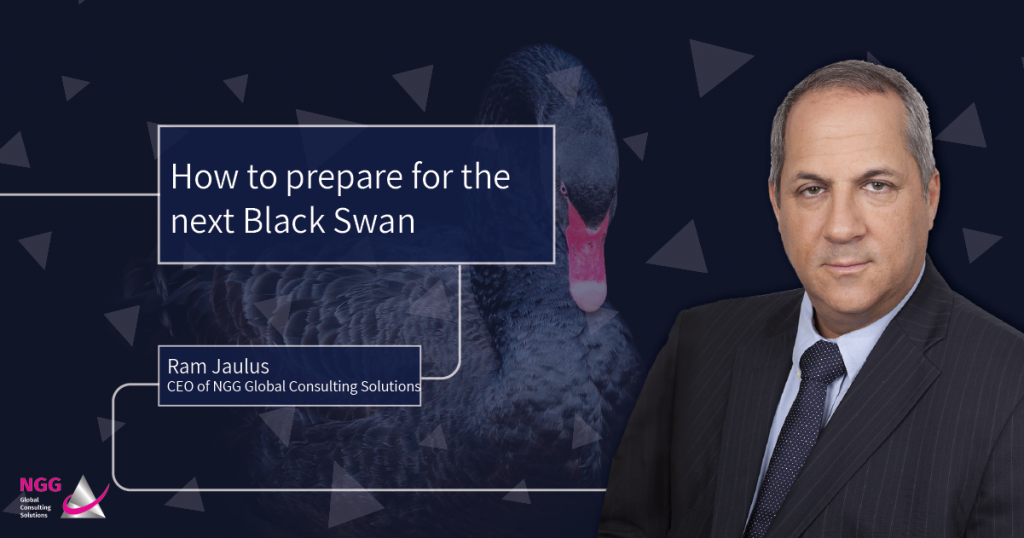
Unless you’re a pandemic expert, the Coronavirus has probably caught you too by surprise. In the business world we call this a Black Swan: a significant event that cannot be predicted based on past events or assumptions. Yet Corona or no Corona and on an organizational level, should we really have been caught so off-guard?
As human beings, we all need life patterns to organize our reality. We conveniently believe in our routines, prefer that what has been will continue to be and rely on assumptions based on past events to simplify complex systems. But life is so much more complicated than that.
From past assumptions to future misconceptions
Assumptions that lead to misconceptions are common in every organization, and while their intensities vary, they all may threaten the organization’s survival. For example, the assumption that short-term ROE should be any organization’s most important goal has been challenged by experts and academic theories, that argue that long-term survival should be the main motivation of an organization. If a leader directs his or her organization based on short-term goals, how are long-term parameters taken into account and how can the organization formulate and manage a long-term survival strategy?
The tendency to act on a short-term basis often leads to a local and self-centered vision. A manager led by short-term goals will allocate all resources to the goal, even if this is contrary to long-term needs. This is commonly seen in industries that for years have been centralizing supply sources from a limited number of expert suppliers, perhaps even a single supplier, in order to streamline the procurement process. Indeed, streamlining has served the purpose. But when an extreme event like the Coronavirus suddenly occurs and distances the supply stream from the same single supplier with no alternative source to rely on- the damage may be fatal.
While we can perceive such an event as a force majeure that we can’t do anything about, we can also choose to develop a better balance between short and long-term goals, and further invest in creating alternatives.
Start-ups operate in a similar way: Instead of building companies that can gradually stand on their own two feet, they develop companies with the sole purpose of being sold. If this mission is accomplished – everybody wins, but in most cases these missions fail, with nothing remaining but an unfulfilled dream. However, start-ups can choose to operate differently by adopting two parallel actions. They can build a solid company with strong building blocks, and make an exit if the right opportunity arises.
Preparation tips for the next Black Swan
The thing with black swans is that that they will always arrive unexpectedly. Although we can’t guarantee a solution for every risk, we can better prepare our organizations for change and crisis situations. Here’s how to do this:
1. Save your motivational energy: Prior to benefits and corporate needs, organizational leadership is influenced first and foremost by its own motivation. Yet when managers misuse their people’s energy to resolve crises that are not really crises – their motivation is compromised and damaged. Develop control and balance mechanisms that can help your organization examine both decision-making and risk-management processes, that balance unbeneficial impulses and motivations. Keep in mind that if it walks like a duck and it talks like a duck, it is not a black swan. Make sure to identify the problem correctly, before sending your people on a wild goose chase.
2. Act on your lessons: Learning lessons is essential, but it’s more important to act on lessons we have learned: In these Corona times, many organizations have found that working remotely and in capsules result in similar and even better outputs. Yet while many have discovered that the same tasks can be performed in a more efficient way, not all of them are working to preserve this forced-upon achievement. As of today, there are organizations that have not yet accelerated digitization processes, space reduction or self-service activities for customers and employees. While it is evident to them that various processes are not working well, they’re just waiting to return to the previous situation. However, what was will no longer be and there’s no time like the present: act on your lessons today.
3. Be a Devil’s Advocate: Create a mechanism for avoiding misconceptions such as ‘red teams’ and the ‘tenth person’ principle. A red-team’s job is to simultaneously examine a task or project and formulate recommendations and courses of action, while the tenth person must argue otherwise and offer a different course of action. This will help your organization avoid mistakes based on false assumptions.
4. Adopt Risk Management: Principles of risk management should be implemented as an integral part of organizational thinking and culture. This will help your organization verify both the cost of error and the estimated recovery time in each decision-making process.
5. Embrace the new reality: Organizations should realize that the new situation is not temporary and adopt appropriate courses of action. Now is the time to apply a lessons-learning process with an immediate transformation program. Examine what was required and not done; What was done, what worked better and should be applied; What did not work and what needs to be changed.
The next Black Swan is on its way
Responsible management will work parallelly to return to routine while ensuring that what was is not what will be. They will continue to act upon the lessons they have learned, apply risk-management as a way of life, decentralize power while providing necessary guidelines, and create mechanisms that prevent misconceptions and reduce errors. What will work? What not? Who will succeed and who will fail? There is no way to predict for sure, but one thing is certain: flocks of Black Swans are on their way, heading toward us in full speed and increasing frequency.

